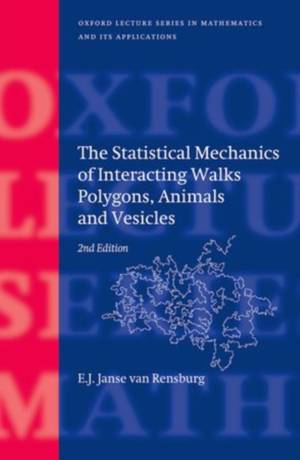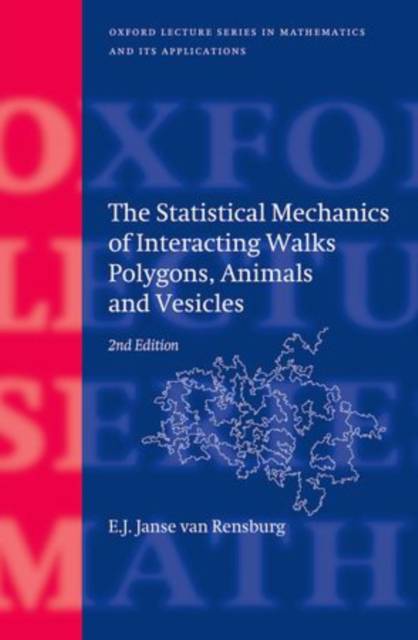
- Afhalen na 1 uur in een winkel met voorraad
- Gratis thuislevering in België vanaf € 30
- Ruim aanbod met 7 miljoen producten
- Afhalen na 1 uur in een winkel met voorraad
- Gratis thuislevering in België vanaf € 30
- Ruim aanbod met 7 miljoen producten
Zoeken
The Statistical Mechanics of Interacting Walks, Polygons, Animals and Vesicles
E J Janse Van Rensburg
€ 281,95
+ 563 punten
Omschrijving
The self-avoiding walk is a classical model in statistical mechanics, probability theory and mathematical physics. It is also a simple model of polymer entropy which is useful in modelling phase behaviour in polymers. This monograph provides an authoritative examination of interacting self-avoiding walks, presenting aspects of the thermodynamic limit, phase behaviour, scaling and critical exponents for lattice polygons, lattice animals and surfaces. It also includes a comprehensive account of constructive methods in models of adsorbing, collapsing, and pulled walks, animals and networks, and for models of walks in confined geometries. Additional topics include scaling, knotting in lattice polygons, generating function methods for directed models of walks and polygons, and an introduction to the Edwards model. This essential second edition includes recent breakthroughs in the field, as well as maintaining the older but still relevant topics. New chapters include an expanded presentation of directed models, an exploration of methods and results for the hexagonal lattice, and a chapter devoted to the Monte Carlo methods.
Specificaties
Betrokkenen
- Auteur(s):
- Uitgeverij:
Inhoud
- Aantal bladzijden:
- 640
- Taal:
- Engels
- Reeks:
Eigenschappen
- Productcode (EAN):
- 9780199666577
- Verschijningsdatum:
- 14/07/2015
- Uitvoering:
- Hardcover
- Formaat:
- Genaaid
- Afmetingen:
- 157 mm x 234 mm
- Gewicht:
- 1156 g

Alleen bij Standaard Boekhandel
+ 563 punten op je klantenkaart van Standaard Boekhandel
Beoordelingen
We publiceren alleen reviews die voldoen aan de voorwaarden voor reviews. Bekijk onze voorwaarden voor reviews.








